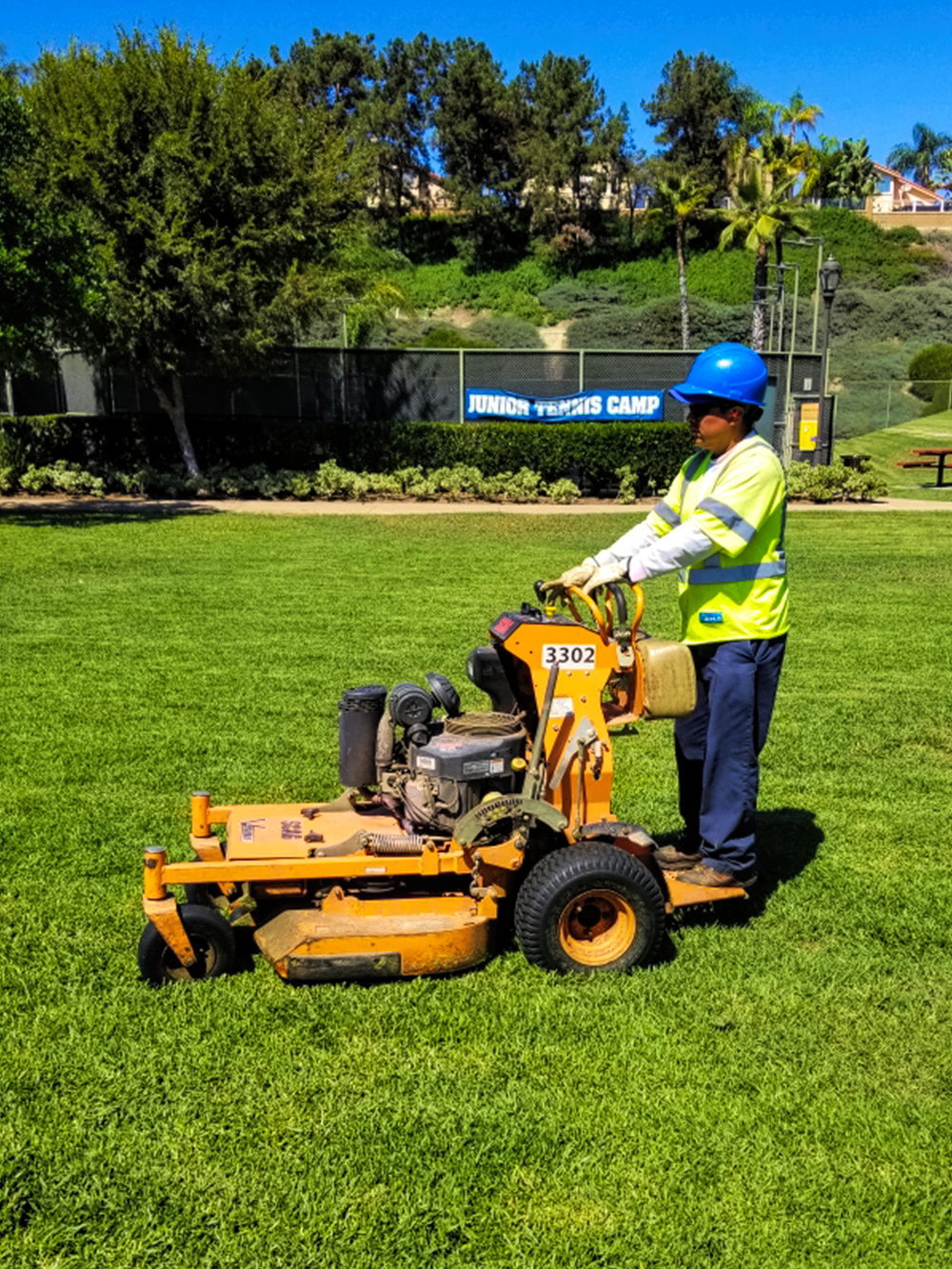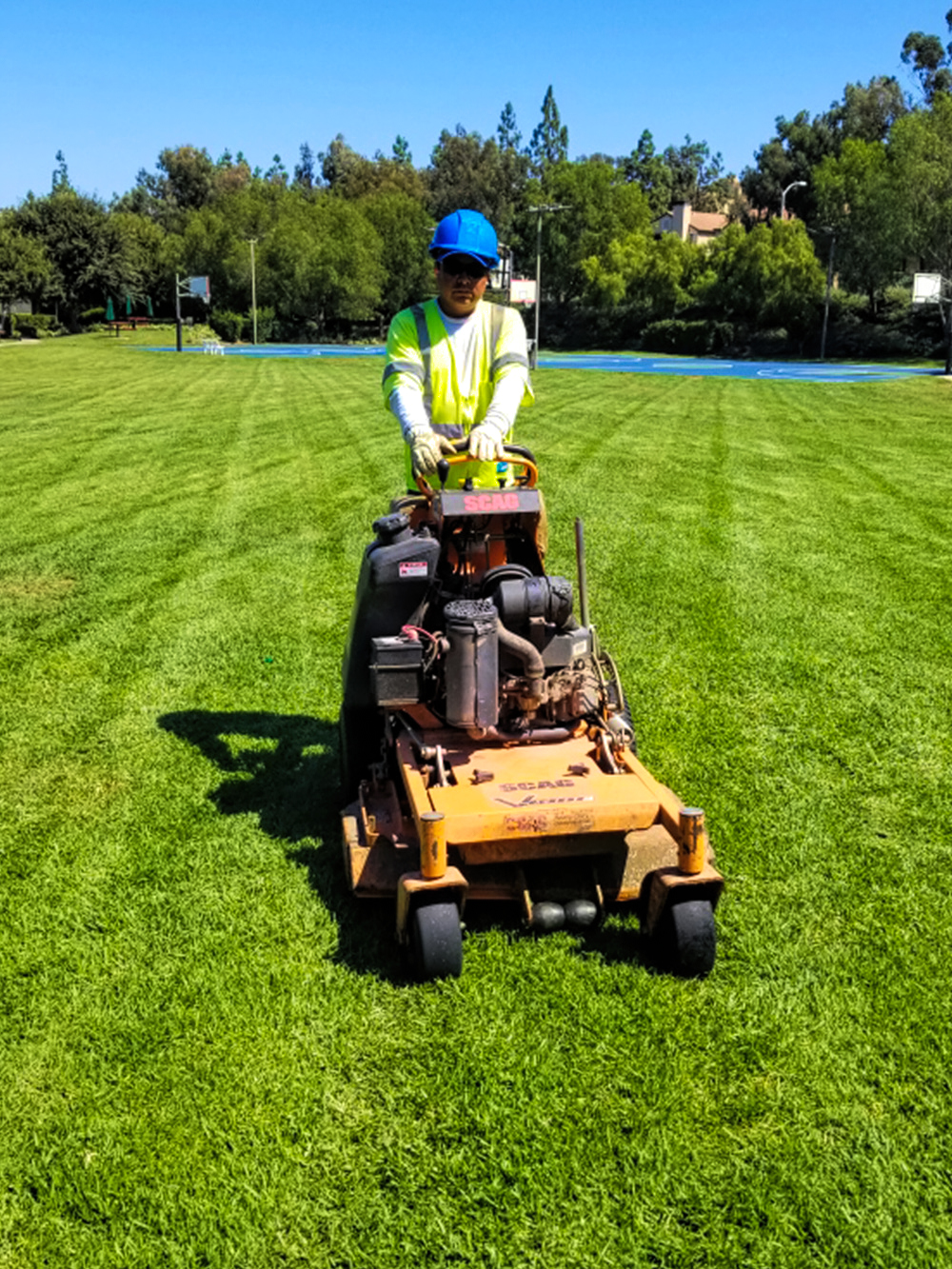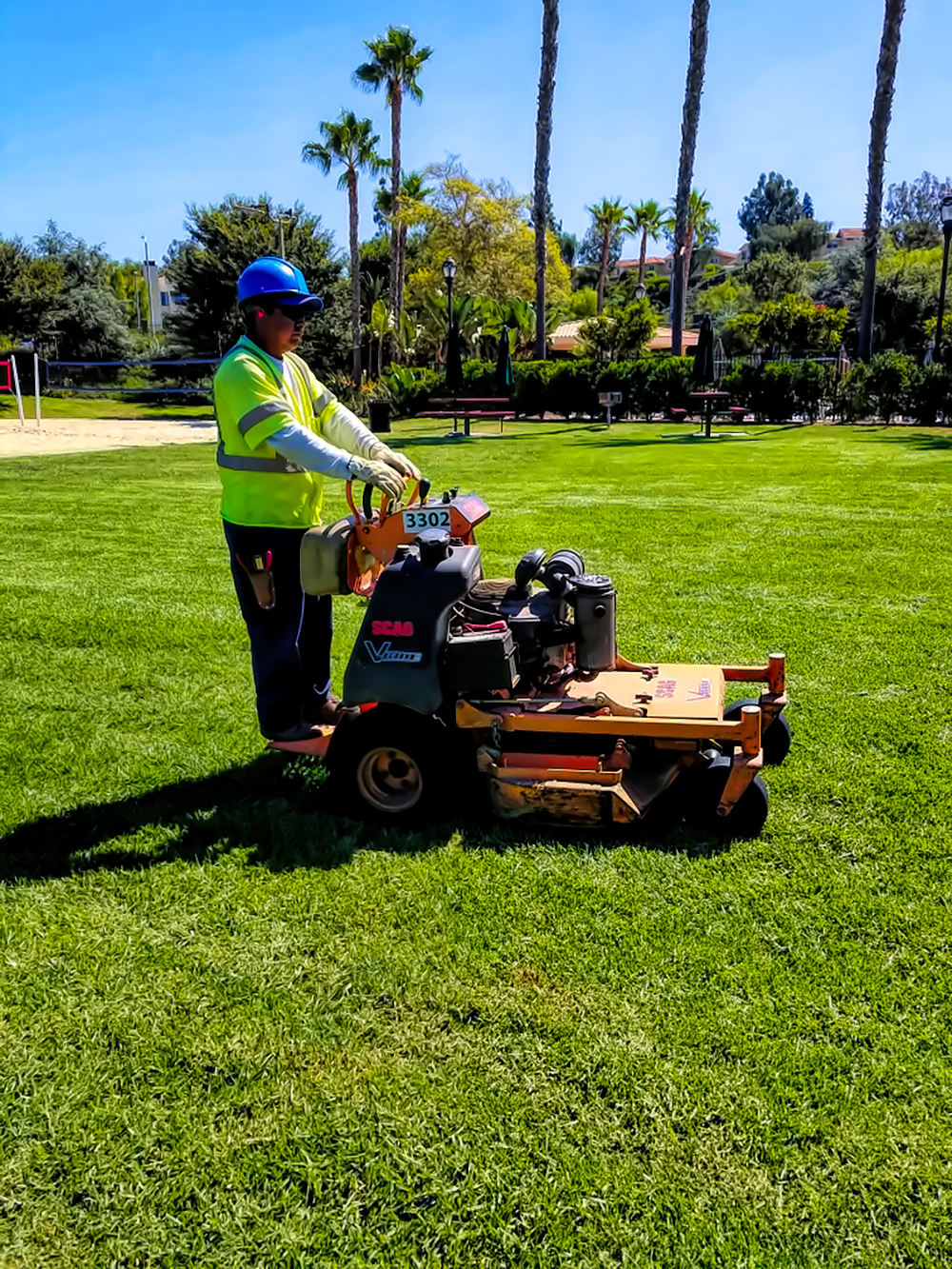


Mulching Mowers
Research and experience show that an acre of turf can generate nine tons of lawn clippings per year. Bagging lawn clippings for disposal at a landfill was the norm for decades, but in recent years state and local laws have been passed requiring green waste, including lawn clippings, to be diverted from landfills.
At Bemus Landscape, most green waste is taken to a specialized processing facility that grinds and composts it into mulch. The exception to this practice is lawn clippings. This is due to the sheer volume of material generated by mowing, as well as the clipping’s incompatibility with other types of green waste during composting.
Fortunately, there is a better way to deal with lawn clippings: lawn recycling. The practice of lawn recycling is horticulturally beneficial and less harmful to the environment than processing it at a green waste facility. Recycling the clippings is done by the use of mulching lawnmowers, which are designed to keep grass blades suspended under the mower deck long enough for them to be cut several times before being blown back into the turf. When used by properly trained personnel, mulching lawnmowers provide a high-quality appearance very similar to that of a lawn that has had the clippings bagged and removed.
The advantage from a horticultural perspective is that the recycled clippings act as organic matter, encouraging earthworms and the beneficial microbial activity that is found in healthy soil. Healthy soil is the foundation of a healthy and lush-looking lawn. From an environmental standpoint, the benefits include reducing the number of trips to and from offsite disposal facilities, and the fact that almost no energy is used in the recycling process.
Some people are under the mistaken impression that lawn recycling contributes to the build-up of thatch in turf. Where thatch is an issue, lawn recycling is not the culprit. Thatch exists where lawn roots and stems die faster than they decompose. The small particle size of recycled lawn clippings helps to ensure that this does not occur. Some types of turf grass, such as Bermuda and Kikuyu, naturally build up thatch over time due to their growth habit, not recycled lawn clippings.
There are other myths associated with lawn recycling of which property owners should be aware. The practice does not forego the need for fertilizer, though it can cause a marginal reduction in the amount of fertilizer required. Another myth is that recycling reduces irrigation requirements, whereas the truth is that it has very little effect on irrigation needs.
Lastly, mulching lawnmowers do not save mowing time, and in fact, when operated properly, they tend to go slower than mowers equipped with bags. As a rule, the extra time spent mowing is offset by the elimination of the need to deal with the bagged clippings.
At Bemus Landscape, one of our goals is to be a very environmentally sensitive firm in our trade, and another goal is to manage our projects with the highest horticultural standards.
To further our efforts in these areas, we use mulching lawnmowers on all of our projects. We have invested a substantial sum of money in the necessary equipment and employee training, and we feel that the end result is worth it.
Should you have any questions about the benefits of our lawn recycling program, please feel free to give us a call.

